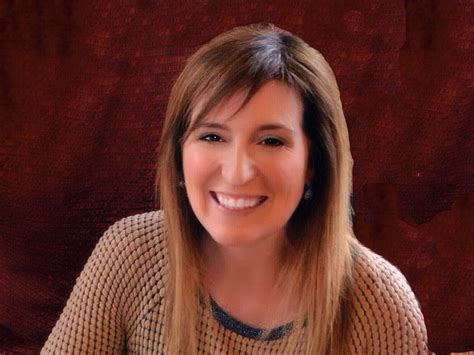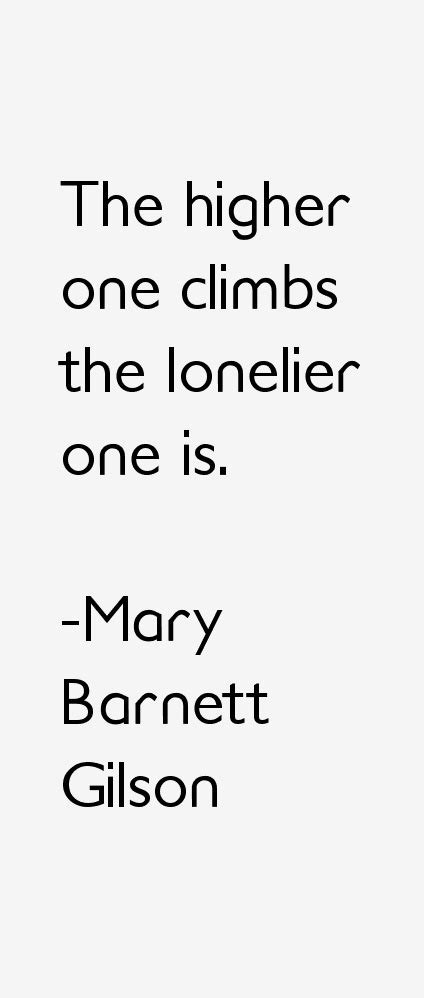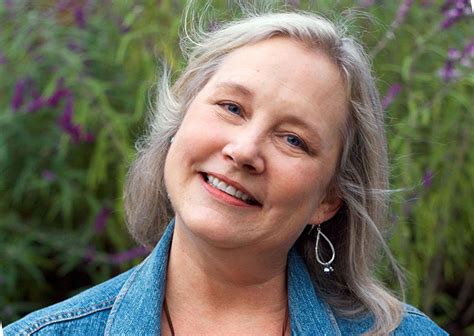Top 1135 Bitterness And Resentment Quotes & Sayings - Page 19
Explore popular Bitterness And Resentment quotes.
Last updated on April 19, 2025.
I talked about the human suffering in Iraq. And I also saw the need to advance a freedom agenda. Imagine a world in which Saddam Hussein was there, stirring up even more trouble in a part of the world that had so much resentment and so much hatred that people came and killed 3,000 of our citizens. I've heard this theory about everything was just fine until we arrived and the stir-up-the-hornet's- nest theory. It just doesn't hold water, as far as I'm concerned. The terrorists attacked us and killed 3,000 of our citizens before we started the freedom agenda in the Middle East.
Friendship after the flesh is very easily destroyed on some slight pretext, since it is not held firm by spiritual perception. But when a person is spiritually awakened, even if something irritates him, the bond of love is not dissolved; rekindling himself with warmth of the love of God, he quickly recovers himself and with great joy seeks his neighbor's love, even though he has been gravely wronged or insulted by him. For sweetness of God completely consumes the bitterness of the quarrel.
A fight is going on inside me," said an old man to his son. "It is a terrible fight between two wolves. One wolf is evil. He is anger, envy, sorrow, regret, greed, arrogance, self-pity, guilt, resentment, inferiority, lies, false pride, superiority, and ego. The other wolf is good. he is joy, peace, love, hope, serenity, humility, kindness, benevolence, empathy, generosity, truth, compassion, and faith. The same fight is going on inside you." The son thought about it for a minute and then asked, "Which wolf will win?" The old man replied simply, "The one you feed.
I no longer become angry. I not only do not say angry words, I do not even think angry thoughts! If someone does an unkind thing to me I feel only compassion instead of resentment. Even upon those who cause suffering I look with deep compassion, knowing the harvest of sorrow that lies in store for them. If there were those who hated me, I would love them in return, knowing that hatred can only be overcome by love, and knowing that there is good in all human beings which can be reached by a loving approach.
So it is with life. Those thorns, the prickly problems of life, cause us to strive to rise above them and then, as we do, we learn. We learn to exercise true compassion, true kindness - or the thorns, if we let them, cause us to brood, to mourn over our trials. Then we plant the seeds of bitterness, hate, and ruin - weeds. We may reach up for the rose or down to the weeds...the weeds in life that tangle us, strangle us, and cause us to lose hope.
What do you know about life? " Bitterness ached in her throat. " You were born with everything. You never had to struggle for a single thing you wanted, never had to worry if you'd be accepted or loved or wanted back." He stared at her, grateful for the moment that she couldn't see that he'd spent nearly half of his life worrying that she, the single thing he wanted, would accept him, love him, and want him back.
Where you go to these really good schools, and it's all about preparing for the next step of success. That was never even on my radar. My job is to explore the world, because this is my one life, you know? That's totally how I see it. But I came to Yale just being like, Yeah, now I get to explore this place and meet all these people who are really smart. And I was just excited to be surrounded by people who were as smart as me or were probably smarter. And I just did not expect the level of competition and bitterness and anger, and, the tearing each other down.
I told him the truth, that I loved him and didn't regret anything about our lives together. But do we ever 'tell the truth, the whole truth, and nothing but the truth, so help me God' as my father used to say, to those we love? Or even to ourselves? Don't even the best and most fortunate of lives hint at other possibilities, at a different kind of sweetness and, yes, bitterness too? Isn't this why we can't help feeling cheated, even when we know we haven't been?
We are commanded to love God with all our strength, heart, mind and soul and our neighbor in the same way God loves us - it is the same love flowing between God and the soul - the soul and its neighbor. It is difficult, but the burden of the cross is light compared to the cross of uncontrolled emotions, anger, insistence on one's own opinion, the frustration of trying to change others rather than being changed oneself, resentment, regrets and guilt. Accepting the present moment like Jesus did is certainly a lighter burden.
As a child there's a horror in discovering the limitations of the ones you love. The time you find that your mother cannot keep you safe, that your tutor makes a mistake, that the wrong path must be taken because the grown-ups lack the strength to take the right one...each of those moments is the theft of your childhood, each of them a blow that kills some part of the child you were, leaving another part of the man exposed, a new creature, tougher but tempered with bitterness and disappointment.
The conflict will always beyond ur strength.The enemy always pushes us beyond our personal, inbred, preset limits concerning how far we'll go for God:"Here's how far I'm going to love,this is how many times I'll turn the other cheek."The test kills the limits of our humanity,til we're like Christ in everything We're left with a choice:Become Christlike or gradually shrivel into superficial hypocrites: angry people who have stopped walking with God, who blame others for our bitterness.
For a mother the project of raising a boy is the most fulfilling project she can hope for. She can watch him, as a child, play the games she was not allowed to play; she can invest in him her ideas, aspirations, ambitions, and values - or whatever she has left of them; she can watch her son, who came from her flesh and whose life was sustained by her work and devotion, embody her in the world. So while the project of raising a boy is fraught with ambivalence and leads inevitably to bitterness, it is the only project that allows a woman to be - to be through her son, to live through her son.
When we accept Christ we enter into three new relationships: (1) We enter into a new relationship with God. The judge becomes the father; the distant becomes the near; strangeness becomes intimacy and fear becomes love. (2) We enter into a new relationship with our fellow men. Hatred becomes love; selfishness becomes service; and bitterness becomes forgiveness. (3) We enter into a new relationship with ourselves. Weakness becomes strength; frustration becomes achievement; and tension becomes peace.
Desire and loss of will tend to hurt the mind, which can lead to fear and compulsion. The result is that we suppress negative emotions, which we've been taught to be shameful of and hide, such as pain, anger, sorrow, and resentment. I take these complex and varied emotions surrounded by obscurity, absurdity, contradiction, and events out of our control such as tragedy, and project them in my work. So I understand that the images can generate fear, confusion, and anxiety in the audience, and if they're difficult to turn away from, it only means that my intention has been communicated.
But Laila has decided that she will not be crippled by resentment. Mariam wouldn’t want it that way. ‘What’s the sense?’ she would say with a smile both innocent and wise. ‘What good is it, Laila jo?’ And so Laila has resigned herself to moving on. For her own sake, for Tariq’s, for her children’s. And for Mariam, who still visits Laila in her dreams, who is never more than a breath or two below her consciousness. Laila has moved on. Because in the end she knows that’s all she can do. That and hope.
The 1970s was the decade of liberation, of anger at injustice and demands for recognition and rights. But over time, the demand for specific rights degraded into a generalized sense of entitlement, the demand for specific recognition into a generalized demand for attention and the anger at specific injustice into a generalized feeling of grievance and resentment. The result is a culture of entitlement, attention-seeking and complaint.
I have always sought to be understood and, while I was taken to task by critics or colleagues, I thought they were right, assuming I had not been clear enough to be understood. This assumption allowed me to work my whole life without hatred and even without bitterness toward criticism, regardless of its source. I counted solely on the clarity of expression of my work to gain my ends. Hatred, rancor, and the spirit of vengeance are useless baggage to the artist. His road is difficult enough for him to cleanse his soul of everything which could make it more so.
If you hold a candle close to you, its flame rises. And if you hold it away from you, its flame shrinks. The same way you hold a candle close to you, keep all your plans, aspirations, projects, and dreams close to you too. Do not share your plans or goals until you complete them, because as you hold your candle away from you, your goals will shrink in the eyes of others. Envy, jealousy, and resentment will put out your flame before it grows.
...here also forgiving does not mean excusing. Many people seem to think it does. They think that if you ask them to forgive someone who has cheated or bullied them you are trying to make out that there was really no cheating or bullying. But if that were so, there would be nothing to forgive. (This doesn't mean that you must necessarily believe his next promise. It does mean that you must make every effort to kill every taste of resentment in your own heart - every wish to humiliate or hurt him or to pay him out.)
Psychiatrists declare that most of our fatigue derives from our mental and emotional attitudes... What kinds of emotional factors tire the sedentary (or sitting) worker? Joy? Contentment? No! Never! Boredom, resentment, a feeling of not being appreciated, a feeling of futility, hurry, anxiety, worry-those are the emotional factors that exhaust the sitting worker, make him susceptible to colds, reduce his output, and send him home with a nervous headache. Yes, we get tired because our emotions produce nervous tensions in the body.
In me there is darkness, But with You there is light; I am lonely, but You do not leave me; I am feeble in heart, but with You there is help; I am restless, but with You there is peace. In me there is bitterness, but with You there is patience; I do not understand Your ways, But You know the way for me.” “Lord Jesus Christ, You were poor And in distress, a captive and forsaken as I am. You know all man’s troubles; You abide with me When all men fail me; You remember and seek me; It is Your will that I should know You And turn to You. Lord, I hear Your call and follow; Help me.
Any real change implies the breakup of the world as one has always known it, the loss of all that gave one an identity, the end of safety. And at such a moment, unable to see and not daring to imagine what the future will now bring forth, one clings to what one knew, or dreamed that one possessed. Yet, it is only when a man is able, without bitterness or self-pity, to surrender a dream he has long cherished or a privilege he has long possessed that he is set free - he has set himself free - for higher dreams, for greater privileges.
Hitler appeared, a man with limited intellectual abilities and unfit for any useful work, bursting with envy and bitterness against all whom circumstance and nature had favored over him....In his desperate ambition for power he discovered that his speeches, confused and pervaded with hate as they were, received wild acclaim by those whose situation and orientation resembled his own. He picked up this human flotsam on the streets and in the taverns and organized them around himself. This is the way he launched his political career.
There is a resentment and rejection of liberal culture. That culture is not available to many people in America. And the liberal coastal elite, who may never have been to rural America, just think everyone there is racist and homophobic and judge them to be terrible people. They think there is nothing wrong to be making jokes about 'meth heads', who are actually a group of people with poverty-related drug issues. They don't see their own hypocrisy. I think this is a huge issue and one that cannot be ignored.
I was raised the Chinese way: I was taught to desire nothing, to swallow other people's misery, to eat my own bitterness. And even though I taught my daughter the opposite, still she came out the same way! Maybe it is because she was born to me and she was born a girl. And I was born to my mother and I was born a girl. All of us are like stairs, one step after another, going up and down, but all going the same way.
It [the Civil War] was a heroic struggle; and, as is inevitable with all such struggles, it had also a dark and terrible side. Very much was done of good, and much also of evil; and, as was inevitable in such a period of revolution, often the same man did both good and evil. For our great good fortune as a nation, we, the people of the United States as a whole, can now afford to forget the evil, or, at least, to remember it without bitterness, and to fix our eyes with pride only on the good that was accomplished.
It has often been said that power corrupts. But it is perhaps equally important to realize that weakness, too, corrupts. Power corrupts the few, while weakness corrupts the many. Hatred, malice, rudeness, intolerance, and suspicion are the faults of weakness. The resentment of the weak does not spring from any injustice done to them but from their sense of inadequacy and impotence. We cannot win the weak by sharing our wealth with them. They feel our generosity as oppression.
A young professor I watched in action at one of our large eastern colleges used to stand with his back to the class and mumble explanations of blackboard problems. He was "let out" at the end of two years because students refused to attend his classes. He was given an evasive reason for his dismissal and he left with justifiable bitterness toward the administration. If someone had told him the truth he could have avoided this denouement. Sometimes professors go on for years without any conception of remediable faults which irritate their listeners.
Divorce is the hardest obstacle I've had to overcome in my life. I would like to believe that most people don't get married anticipating divorce. When I reached that crossroad, I felt like such a failure. After years of therapy together, I realized that staying together was emotionally destructive. My husband didn't want the divorce, but I did. So there was a lot of bitterness initially. Although we are still divorced, we still call each other "family." It was a journey to get there, but it's a beautiful place to be.
Until that moment, I hadn't realized that I embarked on the project of touring historic sites and monuments having to do with the assassinations of Lincoln, Garfield, and McKinley right around the time my country iffily went to war, which is to say right around the time my resentment of the current president cranked up into contempt. Not that I want the current president killed. Like that director, I will, for the record (and for the FBI agent assigned to read this and make sure I mean no harm — hello there), clearly state that while I am obsessed with death, I am against it.
Odd: I wish I could believe in reincarnation. Chief Porter: Not me. Once down the track is enough of a test. Pass me or fail me, Dear Lord, but don't make me go through high school again. Odd: If there's something we want so bad in this life but we can't have it, maybe we could get it the next time around. Chief Porter: Or maybe not getting it, accepting less without bitterness and being grateful for what we have is a part of what we're here to learn.
I am determined, even if they throw mud in my face, never to show any resentment, nor break with them, nor deviate from the esteem and honor I owe them in the sight of God. If they forget themselves and say or do something offensive against your little bark, even if it is done purposely to make it sink, bear with it for the love of God, who will save you from shipwreck and calm the storm. Do not complain or even say a single work about it. In spite of everything, continue to compliment them when you meet, as if nothing were amiss.
We forgive, if we are wise, not for the other person, but for ourselves. We forgive, not to erase a wrong, but to relieve the residue of the wrong that is alive within us. We forgive because it is less painful than holding on to resentment. We forgive because without it we condemn ourselves to repeating endlessly the very trauma or situation that hurt us so. We forgive because ultimately it is the smartest action to take on our own behalf. We forgive because it restores to us a sense of inner balance.
The best results in the operation of a government wherein every citizen has a share largely depend upon a proper limitation of the purely partisan zeal and effort and a correct appreciation of the time when the heat of the partisan should be merged in the patriotism of the citizen. ... At this hour the animosities of political strife, the bitterness of partisan defeat, and the exultation of partisan triumph should be supplanted by an ungrudging acquiescence in the popular will and a sober, conscientious concern for the general weal. ... Public extravagance begets extravagance among the people.
When we hold onto the negative in ourselves it comes with endless guilt. We hold onto a lifetime of floating visions and regrets about what we should have done or should have become. Conscience recognizes wrong and tries to atone. But guilt turns into resentment. Conscience brings us closer to each other; guilt drives us apart. Create a new feeling. Every time guilt settles in your stomach, write "I forgive" on a piece of paper. Send it up the chimney, tear it up and flush it, put it in the garbage. Don't eat it.
The man who lies to himself can be more easily offended than anyone else. You know it is sometimes very pleasant to take offense, isn't it? A man may know that nobody has insulted him, but that he has invented the insult for himself, has lied and exaggerated to make it picturesque, has caught at a word and made a mountain out of a molehill--he knows that himself, yet he will be the first to take offense, and will revel in his resentment till he feels great pleasure in it.
I think of the snarling, cruel exchange back on the hovercraft. The bitterness that followed. But all I say is "I can't believe you didn't rescue Peeta." "I know," he replies. There's a sense of incompleteness. And not because he hasn't apologized. But because we were a team. We had a deal to keep Peeta safe. A drunken, unrealistic deal made in the dark of night, but a deal just the same. And in my heart of hearts, I know we both failed. "Now you say it," I tell him. "I can't believe you let him out of your sight that night," says Haymitch.
The mind is the source of happiness and unhappiness by what it chooses to compare the experience with. If it chooses to compare it to something worse then it will create happiness, gratitude and pride but if it chooses to compare it to something better then it will create unhappiness, bitterness and envy.
But mostly, I remembered what I’ve always believed. What my mom taught me. That while some things are just plain awful, most things in life can be seen either tragic or comic. And it’s your choice. Is life a big, long, tiresome slog from sadness to regret to guilt to resentment to self-pity? Or is life weird, outrageous, bizarre, ironic, and just stupid? Gotta go with stupid. It’s not the easy way out. Self pity is the easiest thing in the world. Finding the humor, the irony, the slight justification for a skewed, skeptical optimism. That’s tough. - Marco, Animorphs #35: The Proposal
Men will see in their king or in their rulers men like themselves perhaps unworthy or open to criticism, but they will not on that account refuse obedience if they see reflected in them the authority of Christ, God and Man. Peace and harmony, too, will result; for with the spread and the universal extension of the kingdom of Christ, men will become more and more conscious of the link that binds them together, and thus many conflicts will either be prevented entirely or at least their bitterness be diminished.
I often accompanied my father. I really liked riding with him on his bicycle on Saturdays. He was very fond of fishing. I don’t think I liked fishing. I mean, you had to sit quietly and still, but I enjoyed the ride. And it was fun, it was fun. I mean, as I say, you didn’t go around lugging a deep sense of resentment. We knew, yes, we were deprived. It wasn’t the same thing for white kids, but it was as full a life as you could make it. I mean, we made toys for ourselves with wires, making cars, and you really were exploding with joy!
Rest forever, tired heart.
The final illusion has perished.
The one we believed eternal is gone.
Just like that. Out the door desire
follows hope. Rest forever.
Enough throbbing. Nothing deserves your attention
nor is the earth worth a sigh.
Bitterness and boredom is life,
nothing else ever, and the world is mud.
Quiet now. Despair for the last time.
Fate gives us dying as a gift.
Now turn from the hills, the ugly hidden power
which rules for the common evil
and the infinite vanity of it all.
Jesus Christ left us an example for our daily conduct. He felt no bitter resentment and He held no grudge against anyone! Even those who crucified Him were forgiven while they were in the act. Not a word did He utter against them nor against the ones who stirred them up to destroy Him. How evil they all were. He knew better than any other man, but He maintained a charitable attitude toward them.
For they might be parted for hundreds of years, she and Peter; she never wrote a letter and his were dry sticks; but suddenly it would come over her, If he were with me now what would he say? --some days, some sights bringing him back to her calmly, without the old bitterness; which perhaps was the reward of having cared for people; they came back in the middle of St. James's Park on a fine morning--indeed they did.
Here was a woman about the year 1800 writing without hate, without bitterness, without fear, without protest, without preaching. That was how Shakespeare wrote, I thought, looking at Antony and Cleopatra; and when people compare Shakespeare and Jane Austen, they may mean that the minds of both had consumed all impediments; and for that reason we do not know Jane Austen and we do not know Shakespeare, and for that reason Jane Austen pervades every word that she wrote, and so does Shakespeare.
One of the greatest gifts we receive from dogs is the tenderness they evoke in us. The disappointments of life, the injustices, the battering events that are beyond our control, and the betrayals we endure, from those we befriended and loved, can make us cynical and turn our hearts into flint – on which only the matches of anger and bitterness can be struck into flame. By their delight in being with us, the reliable sunniness of their disposition, the joy they bring to playtime, the curiosity with which they embrace each new experience, dogs can melt cynicism,and sweeten the bitter heart.
Jesus taught us how to forgive out of love, how to forget out of humility. So let us examine our hearts and see if there is any unforgiven hurt -- any unforgotten bitterness! It is easy to love those who are far away. It isn't always easy to love those who are right next to us. It is easier to offer food to the hungry than to answer the lonely suffering of someone who lacks love right in one
I always rejoice when I see a tribunal filled with a man of an upright and inflexible temper, who in the execution of his country's laws can overcome all private fear, resentment, solicitation, and even pity it self. Whatever passion enters into a sentence or decision, so far will there be in it a tincture of injustice. In short, justice discards party, friendship, kindred, and is therefore always represented as blind, that we may suppose her thoughts are wholly intent on the equity of a cause, without being diverted or prejudiced by objects foreign to it.
[S]omething inside us, the feeling of resentment, the feeling that wants to get one's own back, must be simply killed. I do not mean that anyone can decide this moment that he will never feel it anymore. That is not how things happen. I mean that every time it bobs its head up, day after day, year after year, all our lives long, we must hit it on the head. It is hard work, but the attempt is not impossible.
Among Negroes of my generation there was not only little direct acquaintance or consciously inherited knowledge of Africa, but much distaste and recoil because of what the white world taught them about the Dark Continent. There arose resentment that a group like ours, born and bred in the United States for centuries, should be regarded as Africans at all. They were, as most of them began gradually to assert, Americans. My father's father was particularly bitter about this. He would not accept an invitation to a 'Negro' picnic. He would not segregate himself in any way.
Part of the problem with the word 'disabilities' is that it immediately suggests an inability to see or hear or walk or do other things that many of us take for granted. But what of people who can't feel? Or talk about their feelings? Or manage their feelings in constructive ways? What of people who aren't able to form close and strong relationships? And people who cannot find fulfillment in their lives, or those who have lost hope, who live in disappointment and bitterness and find in life no joy, no love? These, it seems to me, are the real disabilities.
It is our duty to endeavor always to promote the general good; to do to all as we would be willing to be done by were we in their circumstances; to do justly, to love mercy, and to walk humbly before God. These are some of the laws of nature which every man in the world is bound to observe, and which whoever violates exposes himself to the resentment of mankind, the lashes of his own conscience, and the judgment of Heaven. This plainly shows that the highest state of liberty subjects us to the law of nature and the government of God.
From the perfection of Allah's ihsan is that He allows His slave to taste the bitterness of the break before the sweetness of the mend. So He does not break his believing slave, except to mend him. And He does not withhold from him, except to give him. And He does not test him (with hardship), except to cure him.
Every person has the power to make others happy. Some do it simply by entering a room others by leaving the room. Some individuals leave trails of gloom; others, trails of joy. Some leave trails of hate and bitterness; others, trails of love and harmony. Some leave trails of cynicism and pessimism; others trails of faith and optimism. Some leave trails of criticism and resignation; others trails of gratitude and hope. What kind of trails do you leave?
What do you see when you see me?' She asked him, burying her own face in his bosom. 'Do you want the truth?' She nodded. 'The firing squad.' 'That's not the whole truth. Try again.' 'Insatiability,' he said with some bitterness. 'That's oblique but altogether too simple. Once more,' she insisted. 'One more time.' He was silent for several minutes. 'The map of a country in which I only exist by virtue of the extravagance of my metaphors.' 'Now you're being too sophisticated. And, besides, what metaphors do we have in common?



















































